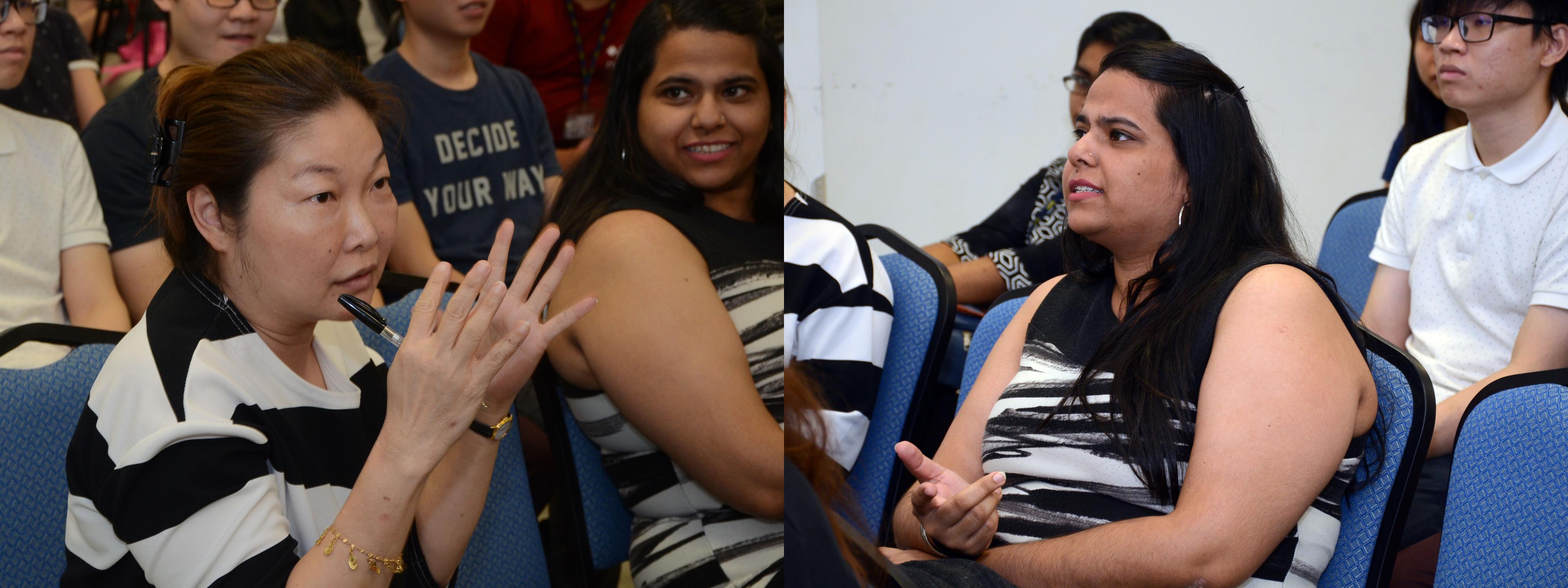

The Centre for Extension Education organised a talk titled “Achieving Tax Optimisation for Individual and Corporate” at Sungai Long Campus on 22 March 2019. It saw more than 50 participants in attendance. Invited for the talk were Faculty of Accountancy and Management Specialist M. Logeswary and Lecturer Yap Wai Onn. The talk was organised with the aim to expose the participants to the introduction of personal tax and corporate tax computation and ways to save on tax legally.
M. Logeswary explaining personal tax computation
M. Logeswary presented the first session on “Individual Taxation”. She gave an explanation on the source of income, tax resident and non-resident, expenses claimed against employment income, types of personal reliefs for resident, submission of form, deadline and tax penalty.
She guided the participants on the steps to compute personal tax and said, “It is important to keep the receipts you filed and claimed for seven years as they will be used as supporting documents. The Inland Revenue Board of Malaysia (IRB) is allowed to impose up to a maximum three times the amount of tax payable in failure of submitting the form. Offenders may be liable to a fine of RM2,000 to RM20,000 or to term imprisonment for a term not exceeding six months or both. ”
Yap speaking about the special voluntary disclosure programme
The second session of the talk was continued by Yap through a discussion on topics such as tax avoidance and evasion, effective tax planning, aggressive tax planning, tax management and administration, tax incentives and benefits, tax compliance issues and special voluntary disclosure programme.
Yap said, “Taxation is not just merely filing in and calculating the tax liabilities due. It encompasses the planning of the business activities and the personal lifestyle of an individual to achieve tax optimisation. The key point towards effective tax planning is not to avoid payment of tax. Tax planning should not be done with an intention to defraud IRB. All business transactions with respect to tax planning should be in correct form and substance. Tax planning works within the framework of the law and it is not illegal.” He added, “The objective of effective planning is to reduce tax liability, minimise litigation, optimise productive investment, and promote healthy growth of economy and stability.”
The talk was followed by a Q&A session before it ended.

Participants asking questions during Q&A session
© 2019 UNIVERSITI TUNKU ABDUL RAHMAN DU012(A).
Wholly owned by UTAR Education Foundation Co. No. 578227-M LEGAL STATEMENT TERM OF USAGE PRIVACY NOTICE